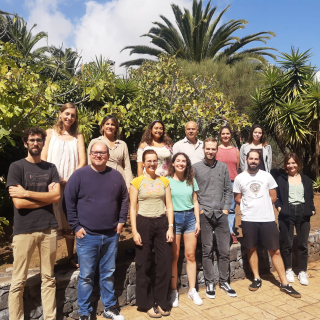Bibcode
Cervantes, J. L.; Vazdekis, A.
Referencia bibliográfica
Monthly Notices of the Royal Astronomical Society, Volume 392, Issue 2, pp. 691-704.
Fecha de publicación:
1
2009
Número de citas
70
Número de citas referidas
66
Descripción
We have defined a new Hβ absorption index definition,
Hβo, which has been optimized as an age indicator for
old and intermediate age stellar populations. Rather than using stellar
spectra, we employed for this purpose a library of stellar population
spectral energy distributions of different ages and metallicities at
moderately high resolution. Hβo provides us with
improved abilities for lifting the age-metallicity degeneracy affecting
the standard Hβ Lick index definition. The new index, which has
also been optimized against photon noise and velocity dispersion, is
fully characterized with wavelength shift, spectrum shape, dust
extinction and [α/Fe] abundance ratio effects. Hβo
requires spectra of similar qualities as those commonly used for
measuring the standard Hβ Lick index definition. Aiming at
illustrating the use and capabilities of Hβo as an age
indicator we apply it to Milky Way globular clusters and to a well
selected sample of early-type galaxies covering a wide range in mass.
The results shown here are particularly useful for applying this index
and understand the involved uncertainties.
Proyectos relacionados

Huellas de la Formación de las Galaxias: Poblaciones estelares, Dinámica y Morfología
Bienvenida a la página web del g rupo de investigación Traces of Galaxy Formation. Somos un grupo de investigación amplio, diverso y muy activo cuyo objetivo principal es entender la formación de galaxias en el Universo de una manera lo más completa posible. Con el estudio detellado de las poblaciones estelares como bandera, estamos constantemente
Ignacio
Martín Navarro